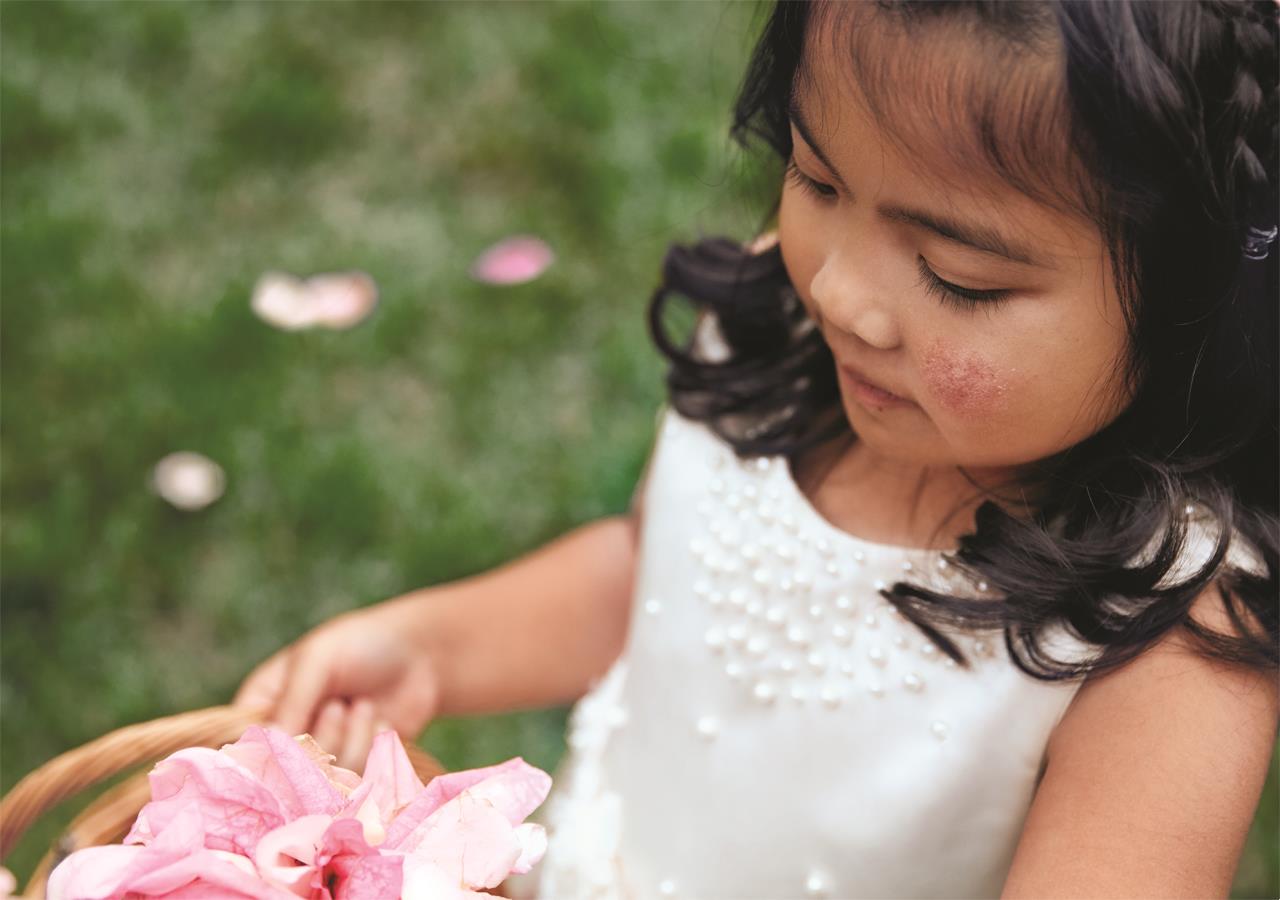
The daily routine for a parent can be hectic and stressful, and having a child that is living with atopic dermatitis (eczema) can be difficult.
Eczema is a common skin condition that may develop during childhood. Eczema typically occurs in characteristic areas of skin and is often identified by scaly or dry patches. Nearly 18 million children and adults across the United States live with the condition. About 90 per cent of those with eczema have the mild-to-moderate form of the disease. And you shouldn't be too surprised your child has eczema, if you have asthma, hay fever, or eczema yourself. Genetic factors are associated with eczema. If your child has eczema, the following tips may help you care for your child and their skin.
1. Know what to watch for
Eczema may look different on different people, so it's important to know what to watch for. The face, neck, arms and legs are common sites for many people, depending on their age. Eczema often appears as a rough, red skin rash. If you think your child has eczema, talk with a doctor to learn what to look for and discuss a possible treatment plan. Here's another tip: consider pajama or bath time as an opportunity to take a moment and check for any changes in your child's skin.
2. Tame the triggers
For some, eczema may flare, or get worse, when they're exposed to different triggers, even if they are currently treating their eczema. Food choices, sweat, stress, and clothing types may all be possible triggers for your child's eczema. Monitor your child's skin, and if you notice a change, talk to their doctor to find the strategies that may best identify these triggers.
3. Prepare appropriately
As a parent, you've probably learned that children never stop moving. Purses are filled with all sorts of things to help keep your child entertained. That preparation can also be applied to eczema. For example, heat and sweat are common causes of flares. Try dressing your child in comfortable, loose clothing or uniforms that have been washed before your child wears them. Don't forget those new gym clothes and soccer jerseys!
4. Adjust bath time routines
Children take baths-for obvious reasons!-but bath time might be a challenge for children with eczema. Try to limit bath time to 5-10 minutes up to once per day with warm, not hot, water. Applying a moisturiser soon after bathing may also help ensure your child's skin is moisturised.
5. Understand your options
There is no cure for eczema, but there are treatment options available. While the above tips may help you manage your child's eczema, always be sure to talk to their doctor to help identify the best treatment plan. — BPT